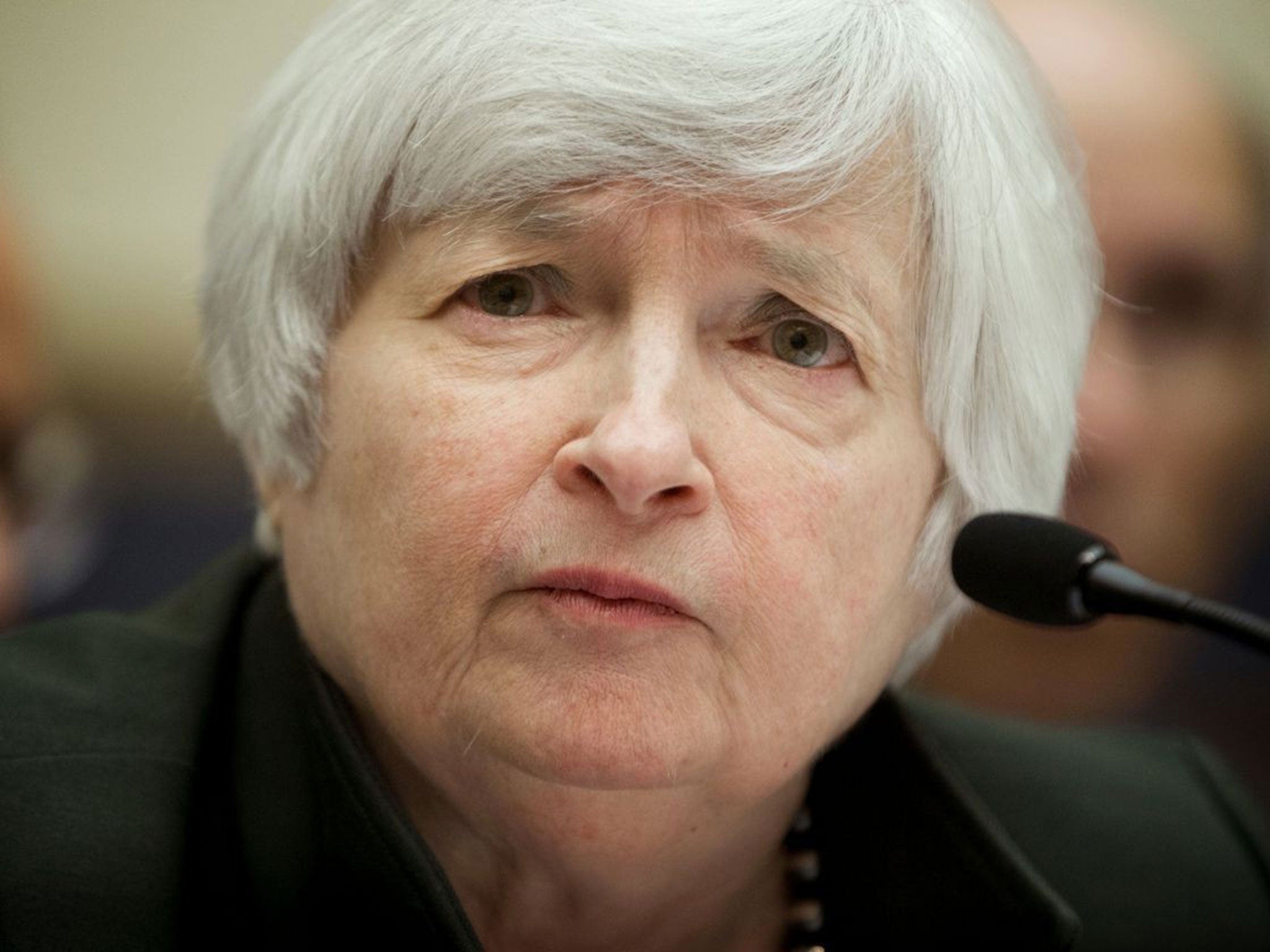Foreign crises do little to dent America's economic confidence
The contrast with Europe is stark as the building blocks for continued US recovery settle into place


One of the astounding things of the past week has been how the worlds of economics and finance have diverged from the world of global politics, at least when viewed from the United States. The catastrophe in the skies above Ukraine barely registered in the US financial markets. Shares went down a bit from yet another all-time high but by the close of play on Friday they had recovered much of their poise.
Of course there is a sniff of fear, as you might expect whenever markets have had a long rally, but it is fear about something going wrong at home, not abroad. What seems to matter from the perspective of American finance is what Janet Yellen, chair of the Federal Reserve Board, thinks about the valuation of technology stocks, or whether the company reporting season, which is just starting, will show that US Inc is still thumping out the profits. If the Russian economy tanks in the months ahead, well, that is the effect that the sanctions approved by the US and Europe last week are supposed to have.
It says something about the self-confidence of the US now, a self-confidence based partly on a sense that the economy has indeed reached escape velocity but also on the boom in oil and gas production. Thanks to fracking, the US has this year passed Russia to become the world's largest producer of oil and gas combined. This gives it a very different perspective from Europe: Europe needs Russian gas, America doesn't.
It also does not need Russia as a market. Russia takes a bit more than 2 per cent of Germany's exports, small but helpful, but it buys hardly anything from the US. For all its swagger as a member of the Bric club, which has just approved the founding of a rival to the World Bank, to be headquartered in Shanghai, the longer-term prospects for the Russian economy are pretty poor. It is the only large country in the world where life expectancy is falling, and its workforce is already in decline.
So what does preoccupy the US right now? The starting point is that, given what is happening elsewhere, it is a pretty good place to be. So what matters more than anything else is the health of corporate America. Good revenue figures from Google were more important than events in Ukraine or the Middle East. A lot of cheer was also taken from the evidence that US companies are investing again.
The point is that so far the missing link in the recovery has been the relatively low levels of investment, a rather similar state of affairs as in the UK – though we differ in one crucial regard in that the US has seen rapid productivity gains but poor job growth, whereas we have experienced the reverse. Low investment would suggest that companies don't quite trust the recovery to continue, while their own behaviour would tend to undermine it. Actually companies invest when they are profitable and they start running out of capacity. Both seem to be happening. A survey by Bloomberg suggests that in this reporting season earnings have exceeded analysts' forecasts in more than three-quarters of all cases. Sales are also running ahead of expectations in most cases. Meanwhile spare capacity is shrinking, and capacity use in manufacturing is at last up to its average level of recent years. The building blocks for an investment-led continued recovery are there.
If this is right, it is good news. It is always hard, when looking at the great swathes of data that the US economy churns out, to pick out the signals from the noise. But when data supports what you instinctively feel when you visit a place, then you should take it seriously. Having made several visits to the US this year I do feel that confidence is noticeably stronger than it was a few months ago. The great test will come when the Federal Reserve ends its artificial support of the economy by buying Treasury securities and when interest rates go up. The first happens later this year, the second presumably in the first half of 2015. No one can pretend to know what will happen, but a confident business sector is likely to be able to cope vastly better than one that is running scared. The US business community is not at all scared; rather the reverse.
What does this mean for the rest of us? Several things. One is that the contrast between the US and Europe is particularly stark, for apart from Germany, the European economy is quite weak. A second is that the UK is much closer to the US in economic terms than it is to Europe and will continue to be so for the foreseeable future. A third is that while US share values are certainly vulnerable at present heady levels, as long as the companies keep up their strong performance, maybe the market is not so mad after all.
Join our commenting forum
Join thought-provoking conversations, follow other Independent readers and see their replies
Comments
Bookmark popover
Removed from bookmarks